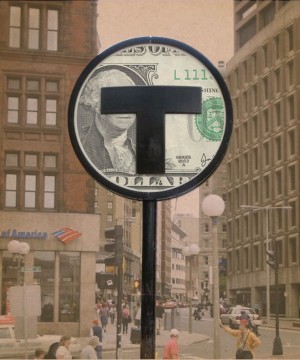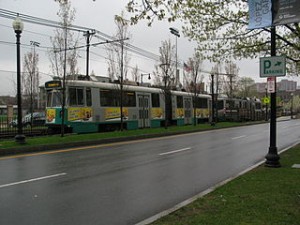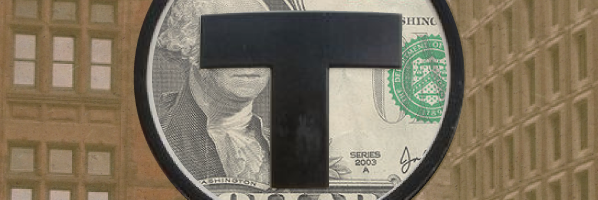
Every day, they see the blinking lights. They hear the loud screeching of the metal against metal. They see a large car move quickly along the rails in their direction, where they have waited for its arrival, possibly to go home or to work. Once they get on, they sit or stand and await their stops. This is the reality that a reported 1.3 million people deal with every day when they get on an MBTA train or bus. However, thanks to recent budgetary concerns, getting around may become more difficult for some people.
In December 2011, the MBTA introduced two possible scenarios in which they’d cut services and raise fares in order to help alleviate a $5.2 billion debt and this year’s $161 million operating deficit. The first scenario would increase fares by 43% overall and would eliminate weekday and weekend services on several bus and train routes, including the Commuter Rail, the Mattapan Line and the E Line. In the second, the fares would be go up by 35% and call for overall elimination of bus lines that connect smaller towns to Boston, along with segmenting several others and getting rid of weekend services for the aforementioned train lines.
The public has responded overwhelmingly with discontent, noting that it is a disservice to consumers, who would be charged more after the cutbacks. Although the MBTA is trying to save itself, it has frustrated a lot of people, and one group is taking a stand.
Students Against T-Cuts, founded by Emerson College freshman Zach Tucker, is informing the public about and rallying students against the initiatives suggested by the MBTA. The group has an informative website and a main Facebook page with 560 likes, and it also has a Twitter account that currently boasts 282 followers at the time of press.
Tucker explained that he started the group with the goal of uniting 250,000 Boston students to stop the proposed cuts. Tucker is aware of the fact that the cuts would affect many students, but wants to contribute to building a community between Boston-based students.
“I could not imagine, and did not want to imagine, what Boston would look like without these vital services,” he said.
Additionally, Tucker’s group is not in opposition to the MBTA itself, but just the proposal. “[We] have a healthy relationship with the MBTA itself, as we have established ourselves as a group that works with the T, not constantly railing against them,” said Tucker, who noted that he is also working with the MBTA Legislative Caucus and the MBTA Rider Oversight Committee.
This is apparent on the group’s website, where they have been putting up the dates and locations for upcoming town hall meetings. The

MBTA has held these gatherings in towns and neighborhoods that will be most affected by the cuts. The assemblies, which are are mandatory by law, have seen a healthy turnout, according to different reports on the meetings.
Although Tucker sees the gatherings as a step in the right direction, he also presented the idea that they may serve another purpose. “I can’t help but think that an ulterior motive might be to build public outcry against the proposals, which could then be channeled towards the State House,” he said.
Nevertheless, it doesn’t appear that the MBTA has presented a wealth of other solutions, except some ideas that piggyback off the proposed scenarios in order to make sure everyone isn’t upset. The MBTA has acknowledged that they are considering enacting peak and off-peak fares on the Commuter Rail, while others have suggested getting the money from other organizations like the Education Department. Others have noticed that only half of the commonwealth’s $40 million snow budget has been used this year, so that money could go towards the deficit.
Altogether, this isn’t an issue that can be solved in a day. Currently, Students Against T-Cuts are organizing a rally (among other gatherings) at the Boylston Green Line station for February 13, and are planning meetings in the most affected areas in the city in order to continue building the movement.
Tucker and his group aim to bring realistic ideas to the table, making what they do more admirable. “These proposals don’t affect everyone in every school in Boston, but it is all about education and building a sense of community,” he said.


To all the people who think the 39 is a suitable alternative, bear this in mind:
The E line runs from Lechmere to Arborway. “Temporarily” suspended at Heath Street (since 1985)
The 39 runs from Back Bay to Forest Hills, so to ride the E line you’d have to change at Park Street from the B/C/D (assuming they offer Lechmere service on one of those), walk to Downtown Crossing (not so bad, Winter Street Concourse is there) to the Orange Line, then change at Back Bay for the 39 bus.
Such a great alternative 🙁
An alternate route would be to change at Copley, walk across Copley Square, catch the 39. Not so good if there’s snow/rain, especially if you’re a senior.
Thats the B line… A downvote for you!